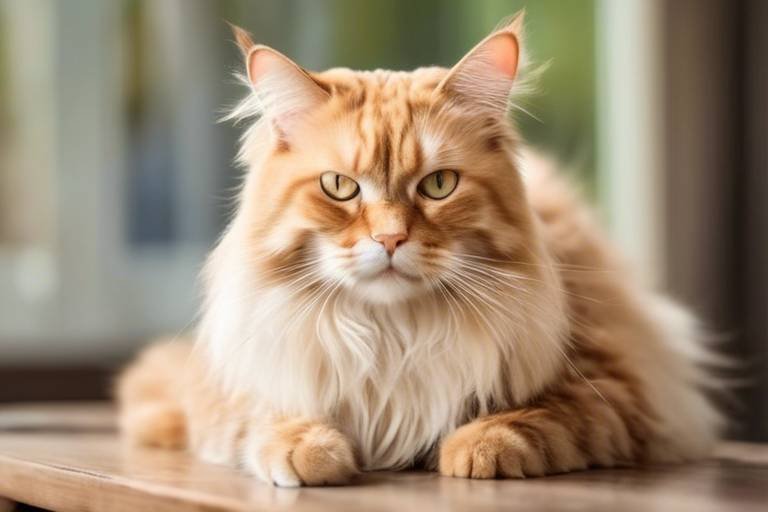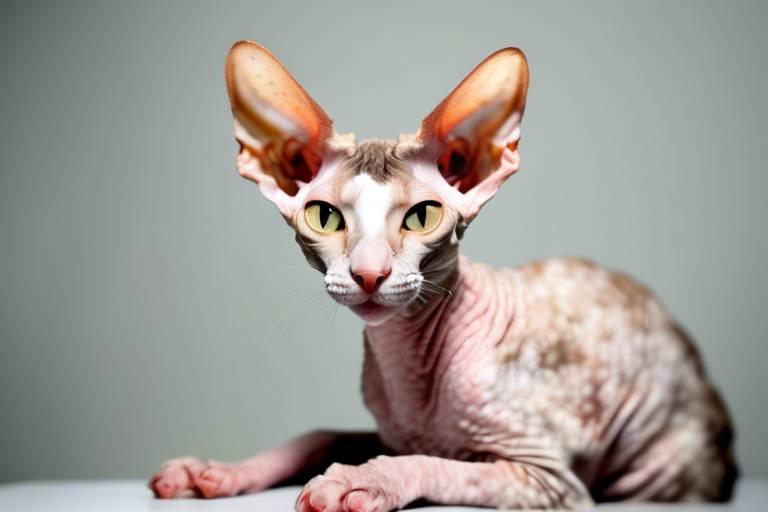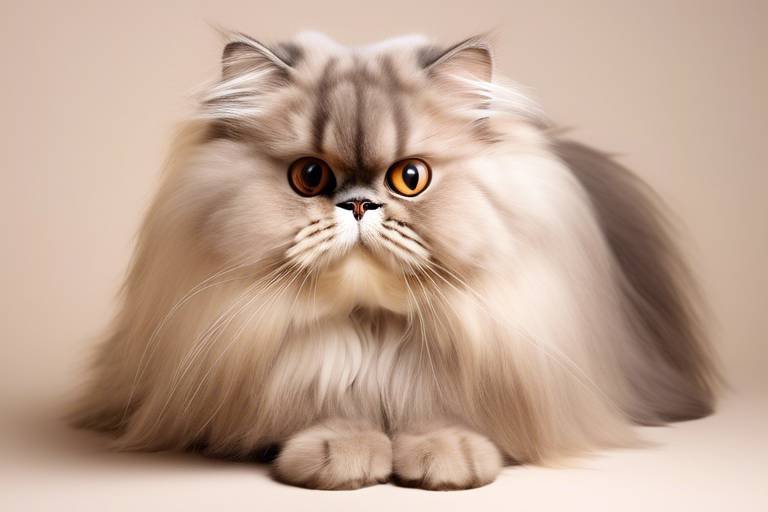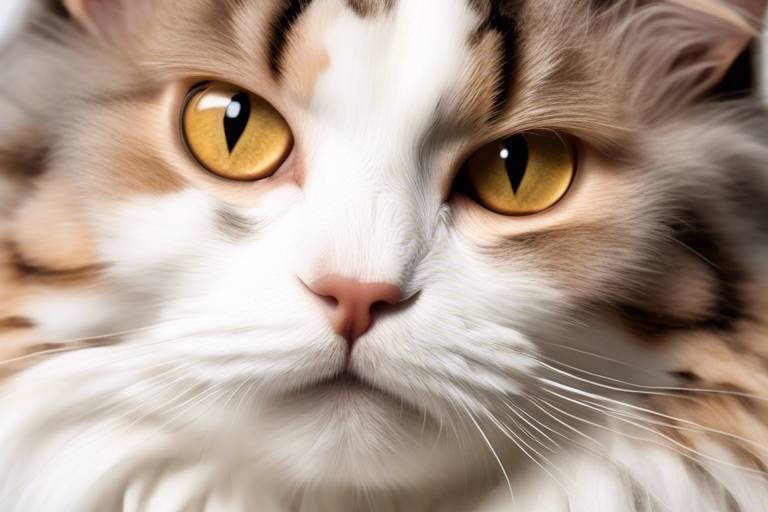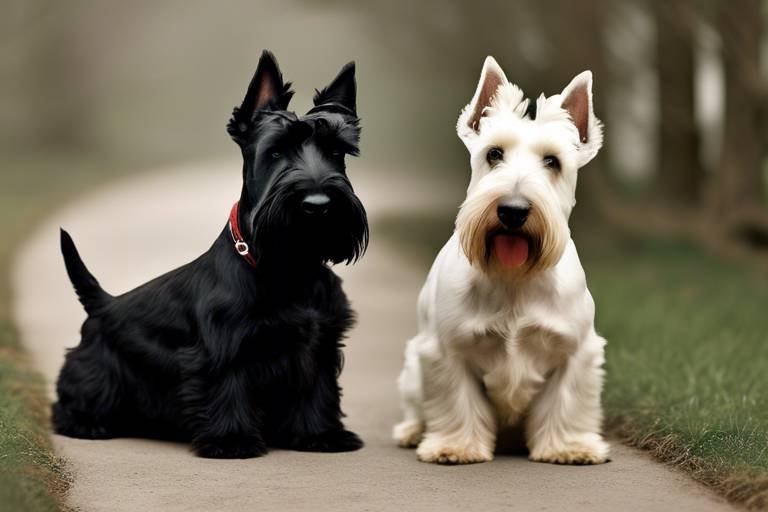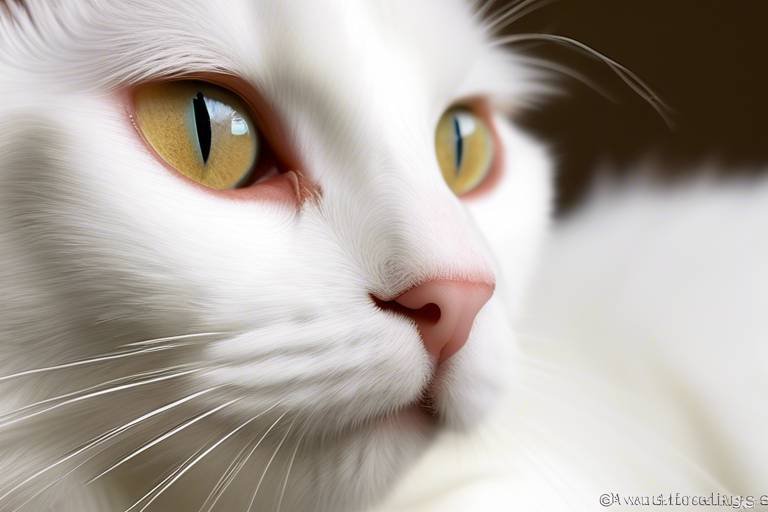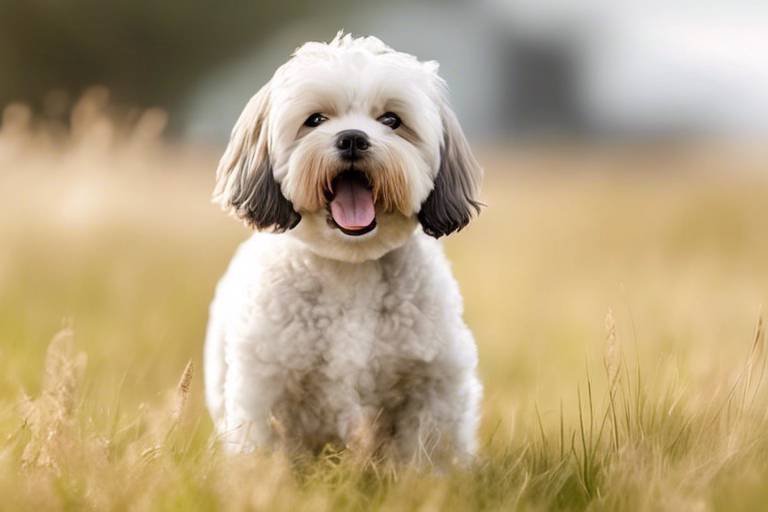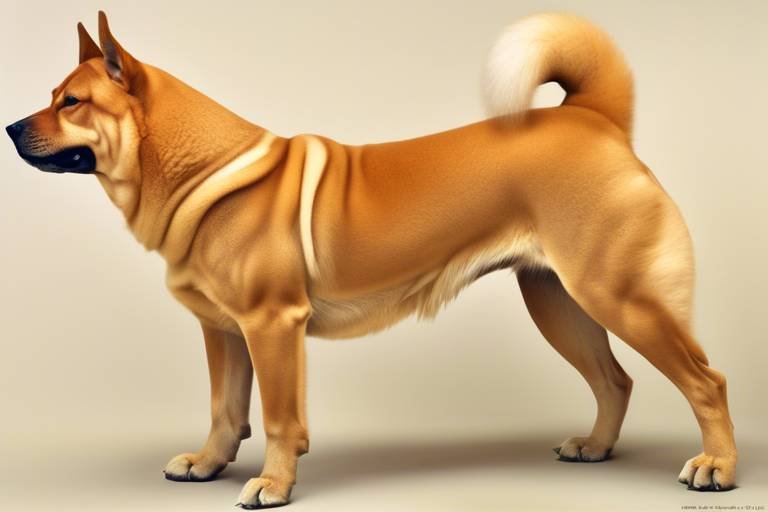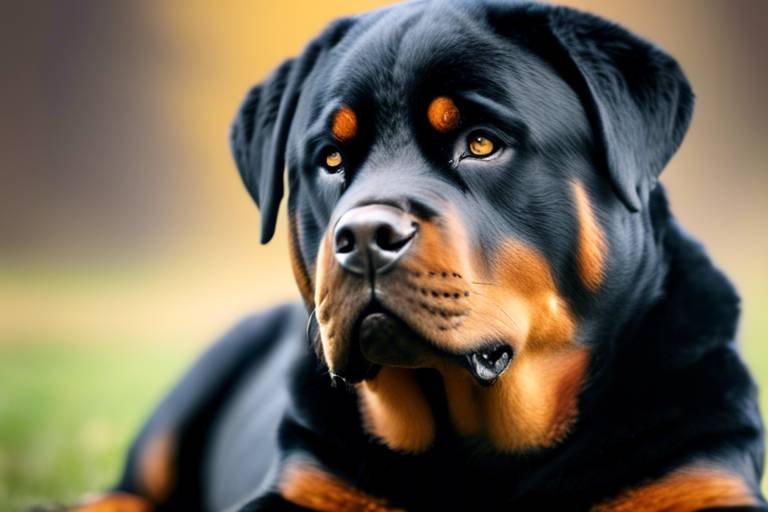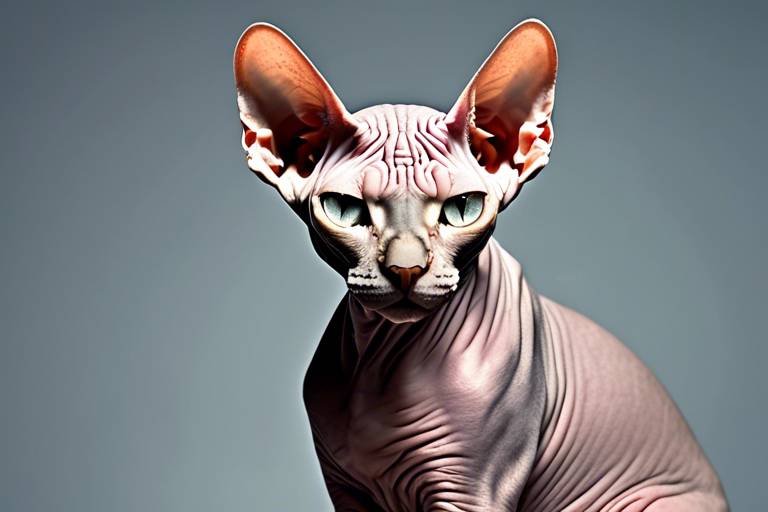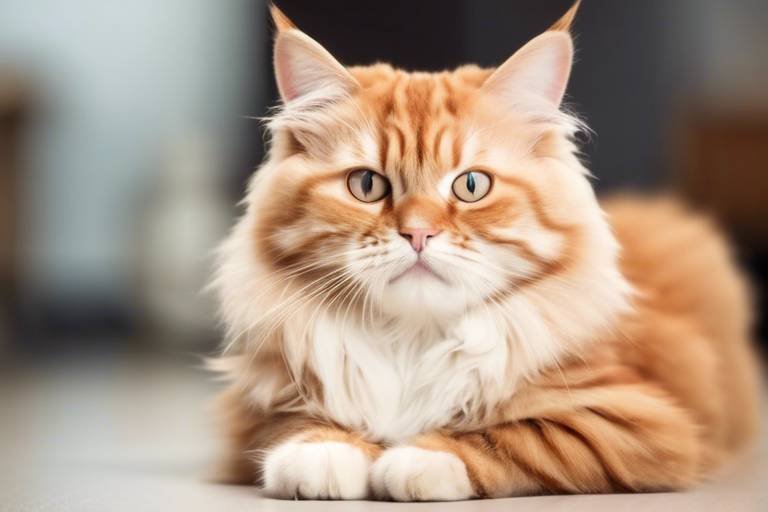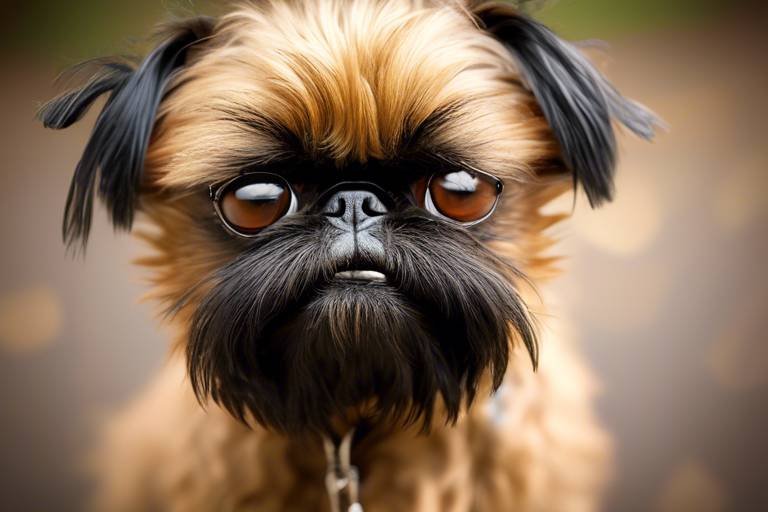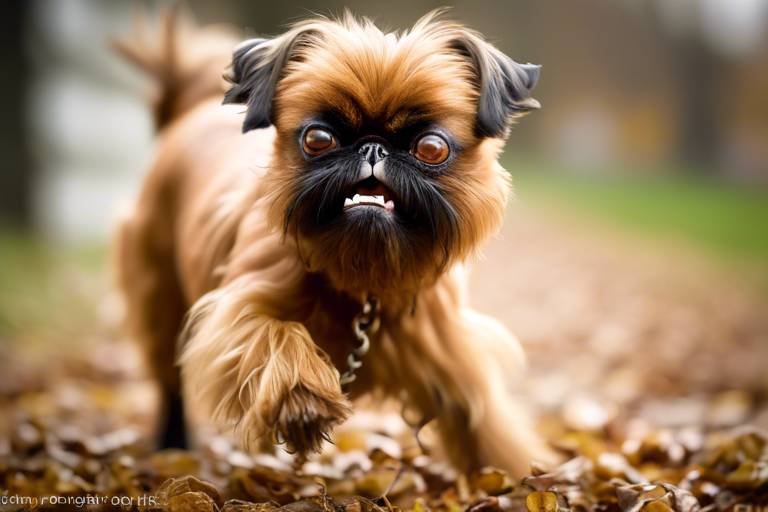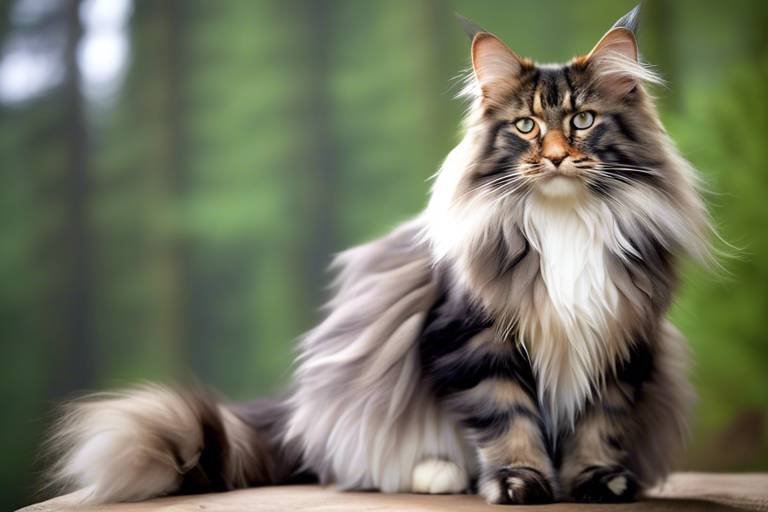The Best Cat Breeds for Seniors - Companionship and Ease
As we age, the importance of companionship becomes increasingly evident. For many seniors, a furry friend can provide not just emotional support but also a sense of purpose and joy. Cats, in particular, can be the perfect companions, offering love and affection without the demanding care that some other pets require. In this article, we will explore the best cat breeds for seniors, focusing on their temperament, care needs, and compatibility with older adults. Whether you're looking for a playful buddy or a calm lap warmer, there’s a breed that can fit seamlessly into your lifestyle.
Seniors often have unique needs when it comes to pets, and understanding these can significantly enhance the pet ownership experience. The emotional benefits of having a cat are profound; they can help reduce feelings of loneliness and depression, providing a comforting presence during quiet days. Physically, the act of caring for a pet can encourage seniors to stay active, whether it’s through playtime or simply the routine of feeding and grooming.
When choosing the right breed, it’s essential to consider factors such as energy levels, grooming requirements, and temperament. A cat that is too energetic might not be suitable for someone who prefers a calm environment, while a breed that requires extensive grooming could become a burden rather than a joy. Therefore, it’s crucial to find a cat that aligns with the senior’s lifestyle and physical capabilities.
Here, we will highlight some of the most recommended cat breeds for seniors. These breeds are known for their friendly nature, low maintenance, and adaptability to a calm home environment. Let’s dive into some of the best options!
Ragdolls are known for their gentle temperament and affectionate nature, making them ideal companions for seniors. These cats are often described as "dog-like" because they enjoy following their owners around and are known for their love of human interaction. Their calm demeanor means they are less likely to engage in hyperactive play, which can be a relief for older adults who may not have the energy to keep up.
Ragdolls are laid-back and easygoing, making them perfect for seniors. Their affectionate nature means they thrive on companionship, often seeking out their human's lap for a cozy nap. In terms of care, Ragdolls require regular grooming due to their long fur, but their calm disposition makes this task manageable. A weekly brushing session can keep their coat healthy and reduce shedding, allowing seniors to enjoy their company without feeling overwhelmed.
While Ragdolls are generally healthy, it's essential for seniors to be aware of some common health issues associated with the breed. These may include heart problems and certain genetic conditions. Regular vet check-ups and a balanced diet can help ensure a long and healthy life for these gentle giants.
British Shorthairs are another excellent choice for seniors due to their easygoing nature. They are known for their round faces and dense coats, which give them a plush appearance. These cats are typically independent and do not require constant attention, making them suitable for seniors who may not be able to engage in high-energy play.
Their calm demeanor and friendly disposition make them great companions, and they often enjoy sitting quietly beside their owners, providing comfort without demanding too much interaction.
For seniors who prefer a more hands-off approach to pet care, some cat breeds require less grooming and care, making them ideal companions. These low-maintenance options can provide companionship without overwhelming responsibilities.
American Shorthairs are known for their adaptability and low grooming needs. They have a friendly disposition and are often very affectionate, making them a great choice for seniors looking for a loving pet. Their short coats require minimal grooming, which is a significant advantage for those who may have difficulty with more demanding breeds.
Persian cats, while requiring more grooming due to their long fur, offer a calm presence that many seniors find comforting. Their affectionate nature means they love to cuddle and be close to their owners. With a little bit of planning, seniors can manage their grooming needs effectively, ensuring that their Persian remains healthy and happy.
- What are the best cat breeds for seniors? Ragdolls, British Shorthairs, American Shorthairs, and Persians are all great options.
- How much grooming do these breeds require? Ragdolls and Persians need regular grooming, while American Shorthairs require minimal care.
- Can cats help with loneliness? Yes, having a cat can provide companionship and emotional support for seniors.
- Are there any health concerns with these breeds? Some breeds may have specific health issues, so regular vet check-ups are important.
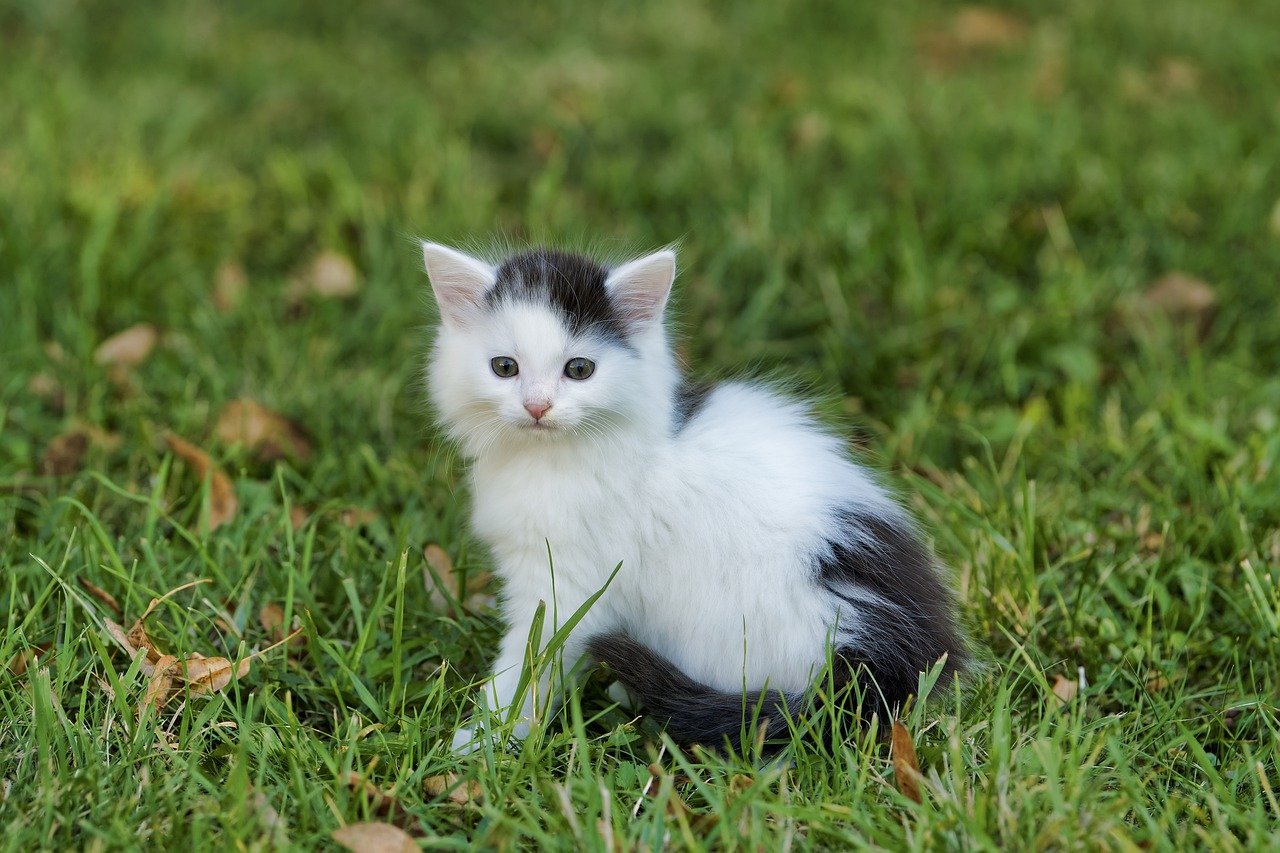
Understanding Senior Needs
Seniors often find themselves at a unique crossroads in life, where the joys of companionship can significantly enhance their emotional and physical well-being. Owning a cat can be one of the most rewarding experiences, providing not just a furry friend but also a sense of purpose and joy. Imagine coming home to a soft purr and a gentle nuzzle; it’s like having a little piece of happiness waiting for you. But it's essential to recognize that not all cat breeds are created equal, especially when it comes to the needs and lifestyles of older adults.
When choosing a cat, seniors should consider their own physical capabilities and emotional needs. For instance, some breeds require more attention and care than others, which might be overwhelming for someone with limited mobility or energy. Additionally, the emotional support that pets provide can be incredibly beneficial for mental health, reducing feelings of loneliness and depression. A cat can be a constant companion, offering affection and warmth, which can be especially comforting during difficult times.
Moreover, the temperament of a cat plays a crucial role in how well it will fit into a senior's lifestyle. Cats that are calm, affectionate, and not overly energetic are often the best choices. They provide companionship without demanding too much physical activity, which can be a blessing for seniors who may not be able to engage in vigorous play. It's also important to consider the cat's grooming needs; some breeds require regular brushing and care, while others are more low-maintenance, allowing seniors to enjoy their pet without the added stress of extensive grooming routines.
In summary, when selecting a cat, seniors should focus on the following key aspects:
- Temperament: Look for calm and affectionate breeds.
- Care Requirements: Choose cats that are low-maintenance.
- Health Considerations: Be aware of any potential health issues associated with specific breeds.
By taking these factors into account, seniors can find a feline friend that not only fits their lifestyle but also enriches their life with companionship and joy.
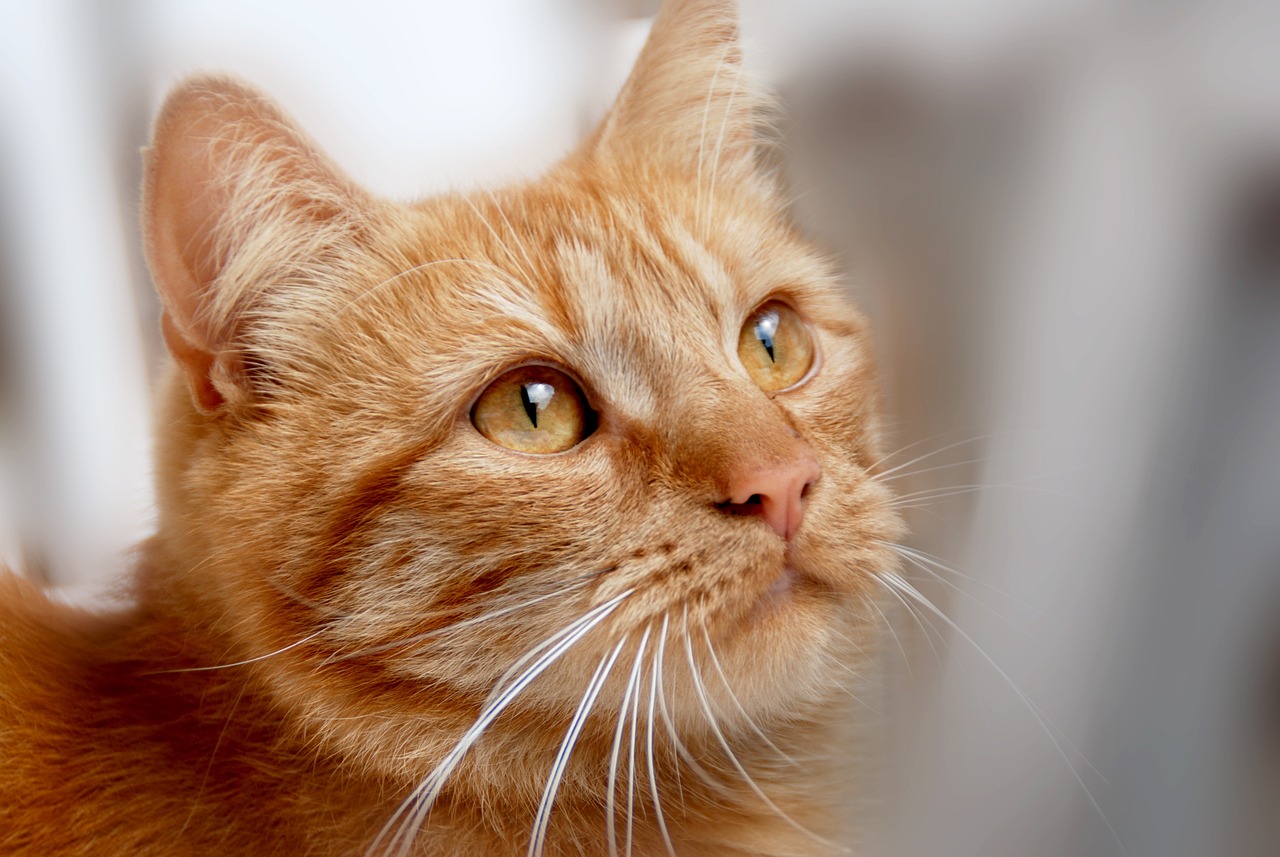
Top Cat Breeds for Seniors
When it comes to choosing the perfect feline friend for seniors, several breeds stand out due to their gentle temperaments and low maintenance needs. Companionship is essential for older adults, as it can reduce feelings of loneliness and provide emotional support. But which cat breeds truly excel in this role? Let's dive into some of the most recommended cat breeds that not only promise to be loving companions but also fit seamlessly into a senior's lifestyle.
First on our list is the Ragdoll. Known for their affectionate nature, Ragdolls are often described as "puppy-like" because they follow their owners around and enjoy being involved in daily activities. Their calm demeanor makes them perfect for seniors who may prefer a more relaxed pet. Ragdolls are also known to be quite sociable, making them great for those who enjoy having a furry friend to cuddle with while watching TV or reading a book.
Next up, we have the British Shorthair. This breed is characterized by its round face and dense coat, but what truly sets them apart is their easygoing personality. British Shorthairs are independent yet affectionate, meaning they can happily entertain themselves while still providing companionship when needed. They don’t require constant attention, making them an ideal choice for seniors who want a pet that is both loving and low-key.
Another excellent option is the American Shorthair. Renowned for their adaptability, these cats are friendly and easy to care for. They are generally healthy and have a robust constitution, which is a plus for older adults who may not have the energy to deal with frequent vet visits. American Shorthairs are also known for their playful nature, offering a delightful mix of fun and companionship.
Lastly, we can’t forget about the Persian cat. While they do require a bit more grooming due to their long fur, Persians are incredibly affectionate and enjoy spending time with their owners. Their calm and laid-back nature makes them a soothing presence in the home. For seniors willing to invest a little time in grooming, a Persian cat can be a wonderfully rewarding companion.
To summarize, here’s a quick comparison of these top cat breeds for seniors:
| Cat Breed | Temperament | Maintenance Level | Affection Level |
|---|---|---|---|
| Ragdoll | Gentle, Affectionate | Low | High |
| British Shorthair | Easygoing, Independent | Low | Moderate |
| American Shorthair | Friendly, Adaptable | Low | High |
| Persian | Calm, Affectionate | Moderate | High |
Choosing the right cat breed can make all the difference in ensuring that both seniors and their feline friends enjoy a harmonious and fulfilling relationship. By considering the temperament and care requirements of these breeds, seniors can find a loyal companion that fits their lifestyle perfectly.
Ragdoll Cats
When it comes to choosing a feline friend, stand out as one of the best options for seniors. These gentle giants are known for their affectionate nature and calm demeanor, making them the perfect companions for those seeking warmth and comfort in their twilight years. Imagine coming home after a long day, and there’s a fluffy ball of love waiting for you, ready to curl up in your lap and purr away your worries. That’s the magic of Ragdolls!
Ragdolls are often described as dog-like in their loyalty and attachment to their owners. They enjoy following you around the house, and their laid-back attitude means they’re not easily stressed by changes in their environment. This adaptability is crucial for seniors who may have a quieter lifestyle. Plus, their affectionate nature means they thrive on human interaction, often seeking out cuddles and attention, which can be incredibly comforting for older adults.
One of the most appealing aspects of Ragdolls is their low maintenance grooming needs. While they do have long, luxurious fur, they are surprisingly easy to care for. Regular brushing, about once or twice a week, is usually sufficient to keep their coats healthy and free of mats. This makes them an excellent choice for seniors who may not have the energy or ability to engage in frequent grooming sessions. Additionally, Ragdolls are generally healthy cats, but like any breed, they can be prone to certain health issues. Understanding these can help ensure a long, happy life for your furry friend.
The temperament of Ragdoll cats is one of their most defining features. They are known for being gentle, affectionate, and easygoing. This breed is particularly famous for their tendency to go limp when picked up, which is how they earned their name. This trait not only makes them adorable but also means they are very comfortable with being handled, which is a plus for seniors who may want to hold or cuddle their pets. Ragdolls are also relatively quiet cats, which can be a relief for those who prefer a peaceful home environment.
As for their care, Ragdolls are generally healthy, but they do require some attention to their health needs. Regular vet check-ups, a balanced diet, and keeping an eye on their weight are essential. They can be prone to certain genetic conditions, such as hypertrophic cardiomyopathy (HCM), which is a heart condition. Seniors should be aware of these potential health issues and ensure they are proactive in their cat's healthcare. Here’s a quick overview of their care requirements:
| Care Aspect | Details |
|---|---|
| Grooming | Brush 1-2 times a week |
| Health Check-ups | Annual vet visits recommended |
| Diet | High-quality cat food, monitor weight |
| Exercise | Playtime is important, but not overly active |
In summary, Ragdoll cats are not just pets; they become part of the family. Their affectionate nature and ease of care make them a wonderful choice for seniors looking for companionship. With a Ragdoll by your side, you can enjoy the simple pleasures of life, from cozy evenings on the couch to gentle purring that fills the room with warmth. So, if you’re considering adding a furry friend to your life, a Ragdoll cat might just be the perfect match!
Temperament and Care
When it comes to Ragdoll cats, their temperament is nothing short of remarkable. These gentle giants are known for their laid-back and affectionate nature, making them perfect companions for seniors. Imagine a cat that greets you at the door, purring and nuzzling against your leg, eager for some quality time. That's the essence of a Ragdoll. They thrive on human interaction and often enjoy being held and cuddled, which can be incredibly comforting for older adults seeking companionship.
In terms of care, Ragdolls are relatively low-maintenance, which is a significant advantage for seniors. Their grooming needs are manageable, requiring brushing about once a week to keep their luxurious coats in top condition and to minimize shedding. This occasional grooming session can even serve as a bonding time between the cat and its owner, enhancing their connection. Additionally, Ragdolls are generally healthy cats, but like any breed, they do have specific health considerations that seniors should be aware of.
To give you a clearer picture, here’s a quick overview of their care requirements:
| Care Aspect | Details |
|---|---|
| Grooming | Weekly brushing is recommended to prevent matting and reduce shedding. |
| Feeding | A balanced diet suited for their age and health is essential. Consult a vet for specific recommendations. |
| Exercise | Ragdolls enjoy playtime but are not overly active; short sessions of play suffice. |
| Health Checkups | Regular veterinary visits are important to monitor their health and catch any issues early. |
Overall, Ragdolls are a fantastic choice for seniors, combining their gentle demeanor with manageable care needs. They adapt well to a calm home environment and can provide emotional support, making them not just pets but true companions. So, if you're considering adding a furry friend to your life, a Ragdoll could be the perfect match!
Health Considerations
When it comes to welcoming a Ragdoll cat into your home, understanding their health considerations is paramount for ensuring a long and happy life together. These beautiful felines are generally robust, but like any breed, they come with their own set of potential health issues that seniors should be aware of. One of the most common concerns is hypertrophic cardiomyopathy (HCM), a hereditary condition that affects the heart muscle. Regular veterinary check-ups can help catch this early, allowing for potential management through diet and medication.
Another issue to keep in mind is obesity. Ragdolls are known for their laid-back demeanor, which can sometimes lead to a sedentary lifestyle. It’s essential to monitor their weight and encourage gentle play to maintain a healthy physique. Obesity can lead to a host of other health problems, including diabetes and joint issues, which can be particularly challenging for seniors who may already have mobility concerns.
Moreover, Ragdolls are prone to certain dental issues, so regular dental care is crucial. It’s a good idea to incorporate dental hygiene into their routine, which can be as simple as providing dental treats or using special toothpaste designed for cats. Keeping their teeth clean not only helps prevent bad breath but also reduces the risk of more serious health problems down the line.
In addition to these specific health issues, it’s important to consider their overall well-being. Ragdolls thrive on social interaction and can become stressed or depressed if left alone for long periods. This emotional aspect is particularly relevant for seniors, who may also be dealing with loneliness. Providing a stimulating environment with toys, scratching posts, and regular interaction can significantly enhance their quality of life.
Lastly, proper nutrition plays a vital role in maintaining their health. A balanced diet rich in essential nutrients will support their immune system and overall vitality. Consulting with a veterinarian about the best food options for your Ragdoll can help ensure they receive all the necessary vitamins and minerals.
In summary, while Ragdolls make excellent companions for seniors, being aware of their specific health considerations is crucial. Regular vet visits, a balanced diet, dental care, and ensuring they remain active will contribute to a fulfilling and healthy life for both the cat and their senior owner.
- What are the common health issues in Ragdoll cats? Ragdolls are prone to hypertrophic cardiomyopathy, obesity, and dental problems.
- How can I help my Ragdoll maintain a healthy weight? Regular playtime and portion-controlled feeding are essential to prevent obesity.
- Is dental care important for Ragdolls? Yes, regular dental care is crucial for preventing dental diseases and maintaining overall health.
- How much social interaction do Ragdolls need? Ragdolls thrive on social interaction, so it’s important to spend quality time with them daily.
British Shorthair Cats
The British Shorthair is a feline that embodies a perfect blend of charm and independence, making it an excellent choice for seniors. With their round faces, plush coats, and stocky bodies, these cats not only look adorable but also possess a temperament that is both calm and affectionate. They tend to be less demanding than some other breeds, which is a significant advantage for older adults who may not have the energy to keep up with an overly active pet.
One of the most appealing characteristics of British Shorthairs is their easygoing nature. They enjoy spending time with their human companions but are also perfectly content to lounge around the house, making them ideal for seniors who appreciate a more relaxed lifestyle. This breed is known for its gentle demeanor, often forming strong bonds with their owners without being overly clingy. Imagine curling up on your favorite chair with a British Shorthair purring beside you; it’s a recipe for comfort and companionship!
In terms of care, British Shorthairs are relatively low-maintenance. While they do have a thick coat that requires regular grooming, it’s not as demanding as some long-haired breeds. A weekly brushing is usually sufficient to keep their fur in good condition and reduce shedding. Additionally, they are generally healthy cats, but like any breed, they can be prone to certain health issues. It's essential for seniors to be aware of common health concerns such as obesity and hypertrophic cardiomyopathy (a heart condition). Regular vet check-ups and a balanced diet can help mitigate these risks.
When considering a British Shorthair, it's also worth noting their adaptability. They can thrive in various living situations, whether it’s a small apartment or a larger home. Their calm demeanor allows them to adjust well to changes, making them great companions for seniors who might move or downsize. Moreover, British Shorthairs are known to get along well with other pets, which is an added bonus for those who may already have furry friends at home.
In summary, British Shorthair cats are a fantastic option for seniors looking for a loving and easy-to-care-for companion. Their gentle nature, low maintenance needs, and adaptability make them well-suited for a more laid-back lifestyle. With the right care and attention, a British Shorthair can provide warmth and companionship, enhancing the quality of life for older adults.
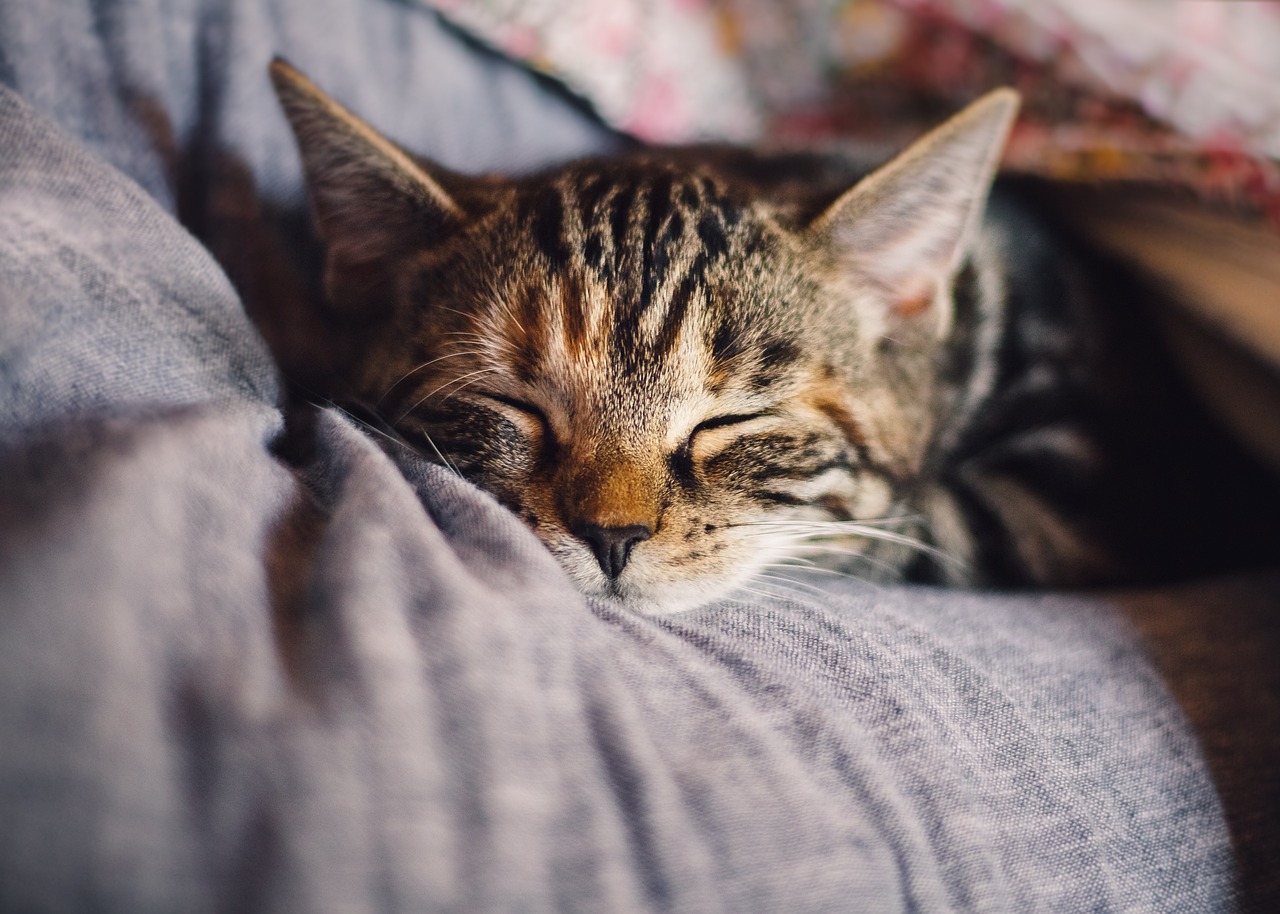
Low-Maintenance Breeds
When it comes to choosing a feline friend, can be a game changer for seniors. These cats not only offer companionship but also come with a set of characteristics that make them easy to care for. Imagine having a pet that curls up beside you, providing warmth and affection, without the overwhelming responsibilities that often accompany pet ownership. Sounds appealing, right? Let's dive into some of the top low-maintenance cat breeds that are perfect for older adults.
First up, we have the American Shorthair. This breed is celebrated for its adaptability and friendly disposition. American Shorthairs are known to be quite independent, which means they can entertain themselves while still enjoying your company. They require minimal grooming due to their short coats, making them an ideal choice for seniors who may not have the energy for extensive pet care. Plus, their playful yet relaxed nature makes them wonderful companions. They are content to lounge around the house, providing comforting presence without demanding constant attention.
Next, we can't overlook the Persian cat. While they do require a bit more grooming than some other breeds, their calm demeanor and affectionate nature make them worth the extra effort. Persians love to be pampered and will often enjoy a gentle brushing session, turning it into a bonding experience. For seniors, managing their grooming needs can become a delightful routine rather than a chore. With their sweet personalities, Persians often become lap cats, providing a soothing presence that can help alleviate feelings of loneliness.
To give you a clearer picture, here's a quick comparison of these two breeds:
| Breed | Grooming Needs | Temperament | Ideal for Seniors? |
|---|---|---|---|
| American Shorthair | Low | Friendly, Adaptable | Yes |
| Persian | Moderate | Affectionate, Calm | Yes |
In summary, low-maintenance cat breeds like the American Shorthair and Persian can provide seniors with the companionship they desire without overwhelming them with care requirements. These cats are not just pets; they become part of the family, offering love and joy in a manageable way. So, if you're a senior considering a furry friend, rest assured that these breeds can make your life a little brighter while keeping things simple.
- What are the best cat breeds for seniors? Some of the best cat breeds for seniors include the Ragdoll, British Shorthair, American Shorthair, and Persian cats, as they offer a combination of friendly nature and low maintenance.
- How much grooming do low-maintenance breeds need? Low-maintenance breeds like the American Shorthair require minimal grooming, while breeds like the Persian may need regular brushing to keep their coats healthy.
- Can seniors handle a cat's health care needs? Yes, with regular vet visits and a bit of education, seniors can manage a cat's health care needs effectively. It's important to choose a breed that aligns with their comfort level.
American Shorthair Cats
When it comes to finding the perfect feline companion for seniors, stand out as a fantastic option. Known for their friendly disposition and easygoing nature, these cats are not just pets; they become cherished members of the family. Imagine a cat that greets you at the door with a gentle purr, eager to snuggle up beside you on the couch. That’s exactly what you can expect from an American Shorthair. They have a calm personality that fits seamlessly into a relaxed home environment, making them ideal for older adults.
One of the most appealing aspects of American Shorthairs is their low grooming needs. Unlike some breeds that require daily brushing and elaborate grooming routines, American Shorthairs have a short, dense coat that is relatively easy to maintain. A quick weekly brush is often all that’s needed to keep their fur looking healthy and shiny. This low-maintenance grooming routine is particularly beneficial for seniors who may have limited mobility or prefer to spend their time enjoying their cat rather than worrying about extensive care.
Moreover, American Shorthairs are incredibly adaptable. They can thrive in various living situations, whether you live in a cozy apartment or a spacious home. Their easygoing nature means they can adjust well to changes, making them suitable for seniors who may move to different living arrangements, such as assisted living facilities. This adaptability is a significant advantage, as it ensures that your furry friend can accompany you through life’s transitions.
Another reason to love American Shorthairs is their playful yet gentle demeanor. While they enjoy playtime, they are not overly demanding. A few interactive toys or a gentle game of chase can keep them entertained without overwhelming their owners. This balance of playfulness and calmness makes them perfect for seniors who want a companion that can engage with them without requiring constant attention.
Health-wise, American Shorthairs are generally robust and hardy cats. They have a lower incidence of genetic issues compared to some other breeds, which is a significant plus for seniors who want a pet that won’t require frequent vet visits. However, like any pet, they can still face health challenges, so regular check-ups are important. Here’s a quick overview of some common health considerations:
| Health Issue | Description |
|---|---|
| Obesity | American Shorthairs can be prone to weight gain, so a balanced diet and regular exercise are essential. |
| Dental Problems | Regular dental care is important to prevent issues like gum disease. |
| Heart Disease | Regular vet check-ups can help monitor heart health. |
In conclusion, American Shorthair Cats offer a blend of companionship, ease of care, and adaptability that makes them an excellent choice for seniors. Their friendly nature and low grooming needs allow for a loving and stress-free relationship, providing emotional support and joy without overwhelming responsibilities. If you’re considering a furry friend to share your golden years with, look no further than the charming American Shorthair!
Persian Cats
When it comes to choosing a feline friend, stand out for their stunning looks and gentle demeanor. These cats are often described as the royalty of the cat world due to their luxurious fur and sweet expressions. If you're a senior seeking a companion that brings both beauty and calmness into your home, a Persian could be the perfect fit. Their affectionate nature and tendency to form strong bonds with their owners make them ideal companions for those who appreciate a little extra love in their lives.
Despite their glamorous appearance, Persian cats are surprisingly low-energy, preferring to lounge around rather than engage in wild play. This makes them an excellent choice for seniors who may not have the energy for an overly active pet. They enjoy a peaceful environment and are known to be quite content with a cozy lap to curl up on. Imagine spending your afternoons with a fluffy Persian cat napping beside you as you read a book or watch your favorite TV show—sounds delightful, right?
However, it’s important to note that while Persian cats are generally low-maintenance in terms of activity, they do require a bit more attention when it comes to grooming. Their long, luxurious coats can easily become tangled and matted if not brushed regularly. Seniors should be prepared for a grooming routine that includes:
- Daily brushing to prevent mats and tangles
- Regular baths to keep their coat looking pristine
- Routine eye cleaning, as Persians can be prone to tear staining
While this may sound daunting, many seniors find grooming to be a therapeutic bonding experience with their cats. Plus, there are plenty of tools available designed to make grooming easier, such as self-cleaning brushes and grooming gloves. With a little patience and practice, grooming can become a relaxing routine that enhances the bond between you and your Persian.
In terms of health, Persian cats can be prone to certain genetic issues, including respiratory problems due to their flat faces. It’s crucial for seniors to be aware of these potential health concerns and to schedule regular veterinary check-ups. Ensuring your cat's health can lead to a longer, happier life together. Here’s a quick table outlining some common health issues to watch for:
| Health Issue | Description |
|---|---|
| Brachycephalic Airway Syndrome | Respiratory problems due to their flat face structure. |
| Kidney Disease | Persians can be prone to chronic kidney disease as they age. |
| Dental Issues | Regular dental care is essential to prevent dental disease. |
In conclusion, while Persian cats may require a bit more grooming than some other breeds, their loving nature and calm demeanor make them wonderful companions for seniors. With the right care and attention, a Persian cat can bring joy and warmth to your home, making every day feel a little brighter. So, if you're ready for a furry friend that’s as affectionate as they are beautiful, consider welcoming a Persian into your life!
Q: Are Persian cats good for seniors?
A: Yes, Persian cats are generally calm and affectionate, making them great companions for seniors.
Q: Do Persian cats require a lot of grooming?
A: Yes, they need daily brushing to keep their long fur healthy and free of mats.
Q: What health issues should I be aware of with Persian cats?
A: Common health issues include respiratory problems, kidney disease, and dental issues.
Frequently Asked Questions
- What are the best cat breeds for seniors?
The best cat breeds for seniors include Ragdolls, British Shorthairs, American Shorthairs, and Persians. These breeds are known for their friendly nature, low maintenance needs, and adaptability to a calm home environment, making them perfect companions for older adults.
- Why are Ragdoll cats ideal for seniors?
Ragdolls are gentle, affectionate, and have a calm demeanor, which makes them great companions for seniors. Their laid-back personality means they enjoy cuddling and being around people, providing emotional support without being overly demanding.
- How much grooming do British Shorthairs require?
British Shorthairs require minimal grooming due to their short, dense fur. A weekly brushing is usually sufficient to keep their coat healthy and reduce shedding, making them an excellent choice for seniors who may have difficulty with more intensive grooming routines.
- Are American Shorthairs good for first-time cat owners?
Absolutely! American Shorthairs are known for their adaptability and friendly disposition. They are easy to care for and get along well with various living situations, making them a fantastic choice for first-time cat owners, especially seniors.
- What should seniors know about caring for Persian cats?
While Persian cats are incredibly affectionate and calm, they do require more grooming due to their long fur. Seniors should be prepared to brush them daily to prevent matting and ensure their coat remains healthy. With regular care, they can be wonderful companions.
- Can having a cat benefit seniors emotionally?
Yes! Having a cat can provide significant emotional benefits for seniors. The companionship of a cat can reduce feelings of loneliness and depression, while the act of caring for a pet can give a sense of purpose and routine, enhancing overall well-being.
- What are some low-maintenance cat breeds suitable for seniors?
Low-maintenance cat breeds suitable for seniors include the American Shorthair and the British Shorthair. These breeds are easy to care for, requiring minimal grooming and attention while still offering companionship and affection.

